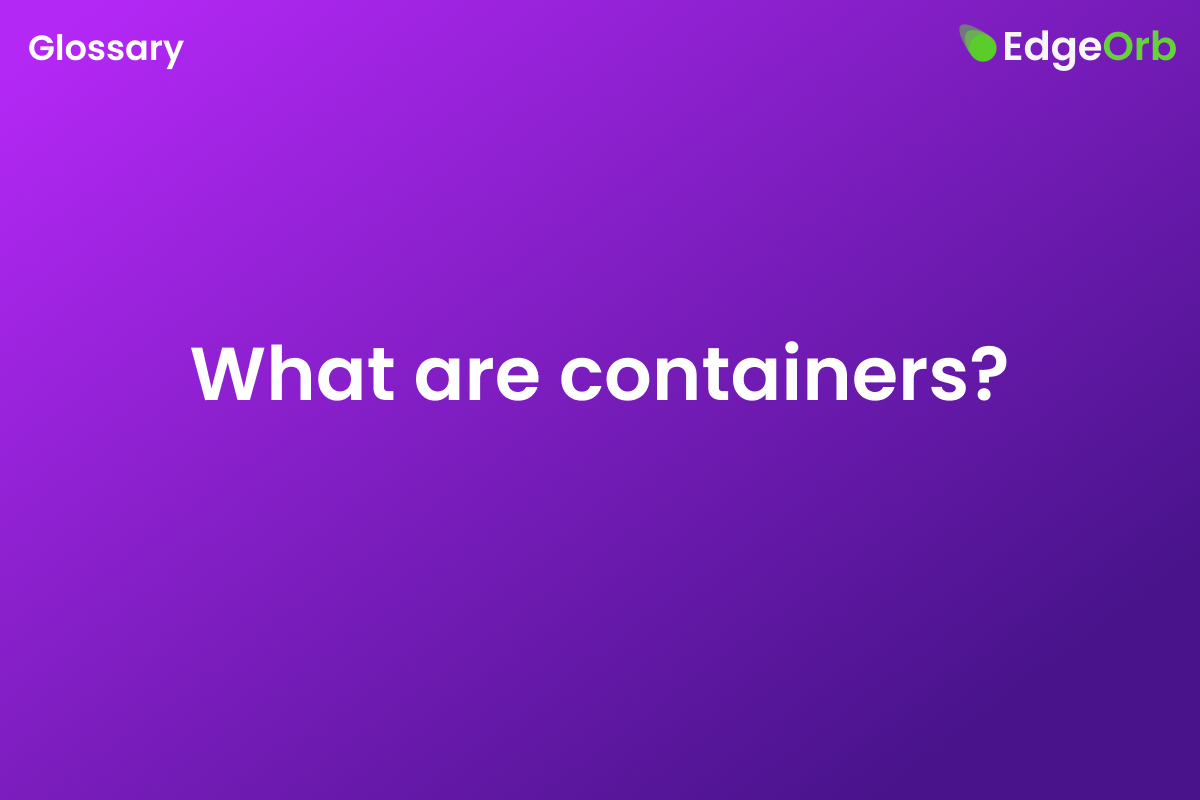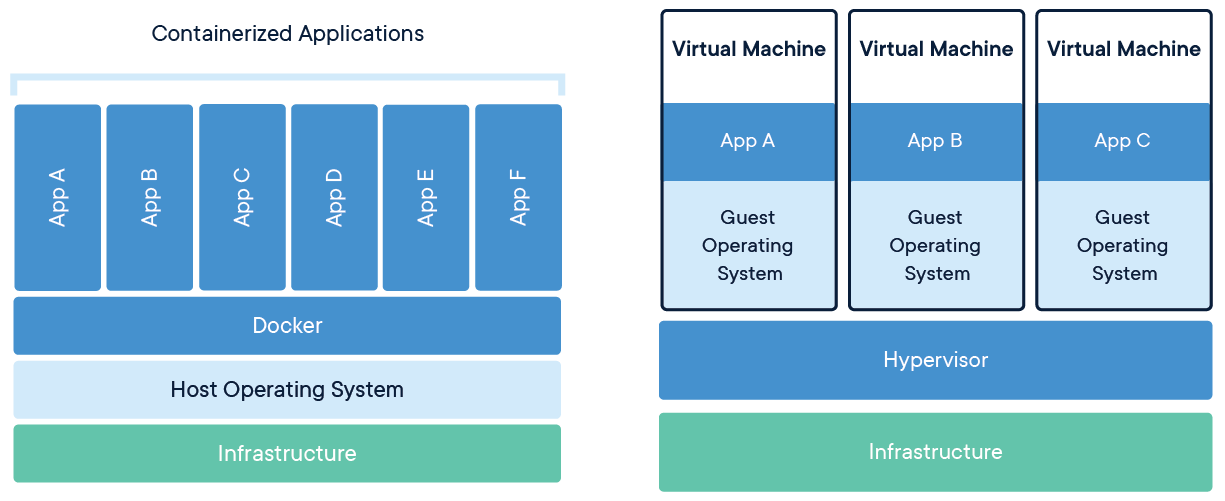
Containers (commonly referred to as Docker Containers), are lightweight, portable software units that package an application and its dependencies (such as libraries and configuration files) together, ensuring consistent behaviour across different environments. Containers are designed to provide a consistent, safe and isolated environment for your application run, regardless of where they are deployed. This could be locally on a developer’s laptop, a testing environment, or in production. If it works in a container, you can rest assured that it’ll work in all other environments too.
What are the benefits of containers?
Isolation: One of the great benefits of containers is that they provide your web applications with isolation from one another, and from the host system. This reduces conflicts, and ensures stability. For example, imagine you have a virtual server running multiple applications. If all these applications depend on the same local dependency, upgrading to a newer version for one application could cause conflicts with the others, potentially leading to downtime.
Portability: As the name suggests, docker containers are the digital representation of real world shipping containers. Shipping containers often need to travel across many different shipping routes, using different mediums and providers - by being adaptable and standardised the sender can ensure they’ll arrive on time and there will be no issues. The same applies for Docker containers - when you build your applications into containers, you’re able to ‘ship’ them to any cloud provider and have the confidence they wont have issues with running them.
Scalability: By being portable and isolated from each other, containers can easily scale up or down based on demand, ensuring your compute resources are used efficiently. This ensures that your application is always meeting the requirements of what your users demand, and the experience is top tier. Containers are commonly used with a PaaS platform (such as EdgeOrb), or a container orchestrator solution such as Docker Swarm or Kubernetes.
Faster deployments: A major advantage of containers is their ability to enable faster deployments with zero downtime. You can version your code and roll out updates by running multiple instances of your application. The new version can be launched, tested, and seamlessly swapped with the existing instances, ensuring smooth and uninterrupted transitions.
What’s the difference between Virtual Machines and Containers?
 Source - docker.com
Source - docker.com
Virtual machines (VMs) are emulations of a physical server, running their own operating system and generally requiring more resources. Containers on the other hand are lightweight, share the host OS kernel and package applications with their dependencies for efficient, isolated execution. Containers are faster to start and more resource-efficient than VMs, making them ideal for microservices and rapid deployments.